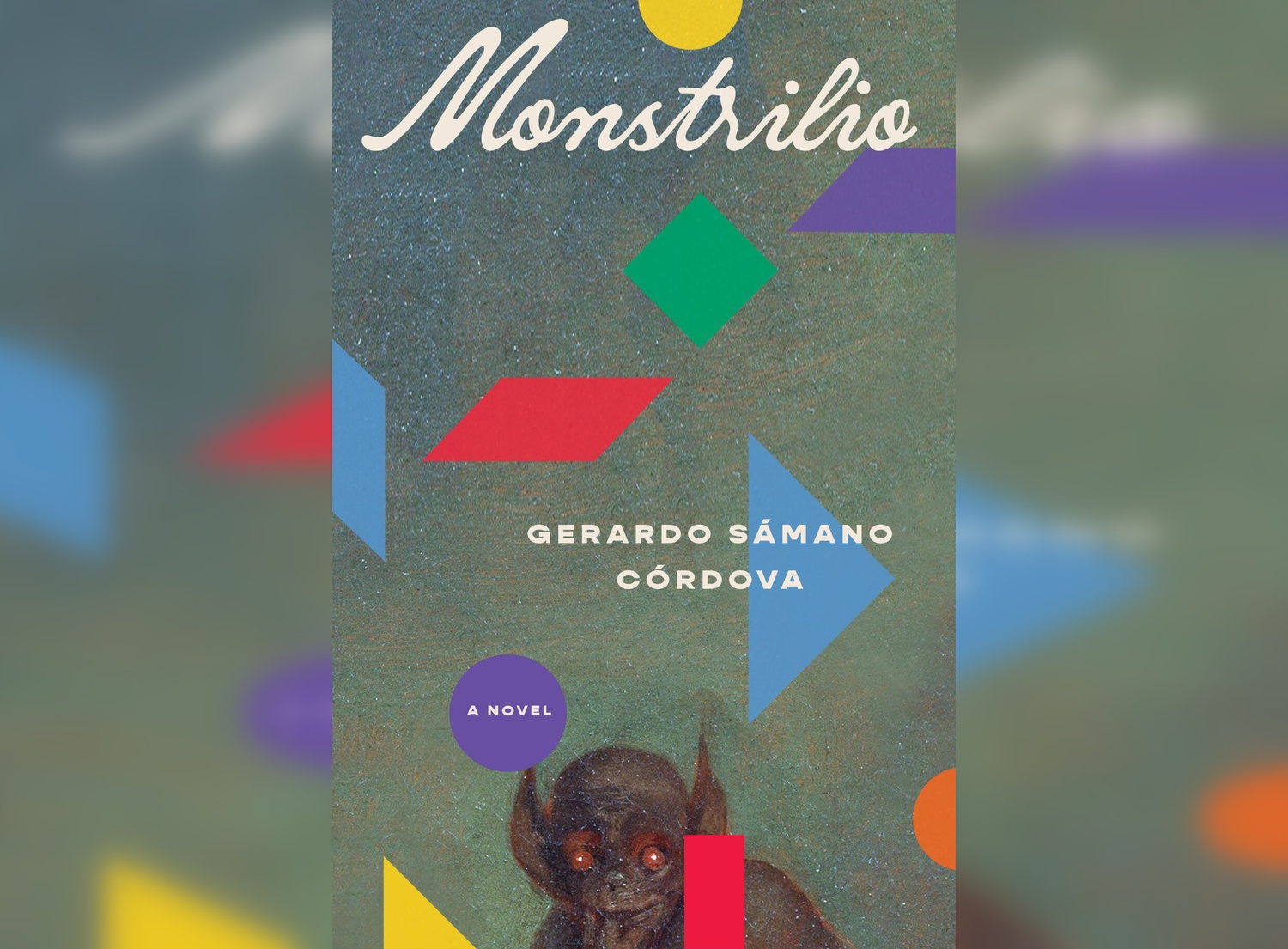
News
Progressive Labor Party Organizes Solidarity March With Harvard Yard Encampment

News
Encampment Protesters Briefly Raise 3 Palestinian Flags Over Harvard Yard

News
Mayor Wu Cancels Harvard Event After Affinity Groups Withdraw Over Emerson Encampment Police Response

News
Harvard Yard To Remain Indefinitely Closed Amid Encampment

News
HUPD Chief Says Harvard Yard Encampment is Peaceful, Defends Students’ Right to Protest
‘Monstrilio’ Review: A Thematically Potent Debut for Gerardo Sámano Córdova
3 Stars

Before even the first page of “Monstrilio,” the back of the book promises to shock. In his debut novel, Gerardo Sámano Córdova dives head-first into a complex blend of conventional literary fiction and disquieting horror. The story, which is told from four perspectives — Magos, a grieving mother; Joseph, her husband; Lena, her best friend; and Monstrilio, the monster itself — follows the tragic loss of a child named Santiago and the growth of a piece of his lung into a monster that eventually emulates the boy that he was carved from. Though the surreal horror and gothic elements complicate what might have otherwise been a more typical vignette of grief, Córdova captures a sense of grim reality in the characters’ mourning, shedding a light on the differences in the way parents, family, and friends cope with loss. The book’s departures from realism only enhance this message of healing and introspection, giving the novel an insightful and deeply human quality.
Stylistically, “Monstrilio” shines. An intimate stream-of-consciousness writing style places the reader directly in the mind of the narrator, yet the prose’s depth and beauty keeps the book a page-turner. Unique and somewhat confusing epithets build intrigue on each page, such as when Magos remarks that “Jackie’s voice was calm, her aura of hair springy” — though the two descriptors seemingly have nothing to do with each other. Córdova has evidently mastered the art of show, don’t tell, especially in the section narrated by Magos, selectively interrupting the plot with powerful anecdotes from her past which help to explain the troubled inner workings of her mind. This is especially apparent in descriptions of Magos’s complex emotions, which are spelled out through her strange actions rather than words. Vivid imagery underscores the prose throughout this work.
Córdova embraces an ambitious but coherently delivered cocktail of themes to the audience. Common threads of loss, love, sexuality, and humanity weave together the four diverse perspectives offered in the novel. The narrative frequently subverts gothic and horror tropes, especially in Magos’s section. Rather than a ghost-like woman withering from grief, as is common in horror, Magos observes her husband suffering through the grieving process. Similarly, Córdova is unafraid to explore female lust and desire, even in the face of grief — a luxury often only afforded to men in the genre.
But disappointingly, many of the strongest gothic and horror elements fade into the background as the story progresses past its first narrator. By the time the story is handed to Joseph, the third narrator, the tried-and-true setting of a gothic home — exemplified by both Magos’s crumbling family estate in Las Lomas and her home with Joseph in New York — is long gone, as the plot is uprooted from its original settings of upstate New York and Mexico to instead float between New York City and Berlin. It’s in this transition that the plot starts to lose its footing.
The biggest flaw of the novel lies in the shifting narration. The first narrator, Magos, has a fascinating internal mind that the reader is eager to occupy; the frenzy and coldness of her maternal pain is complex, forming a puzzle to unravel. By comparison, the middle two narrators — Lena and Joseph — are less interesting. Lena’s unrequited feelings are left unresolved, at least to the external perspectives narrated by Joseph and Monstrilio, and Magos’s character shifts quite drastically while the reader is viewing the world through Joseph’s eyes. Indeed, while the novel is on the longer side as a whole, each part individually yearned for more.
Nonetheless, “Monstrilio” offers an entertaining and shocking read. Unafraid to break precedent and push boundaries of genre, Córdova brings his lusciously descriptive style from the short stories that he is known for to the brave new world of long-form fiction with relative success. Captivating from the first pages and with decent follow-through, there is no lack of introspection to be had. The satisfying conclusion adeptly ties together what otherwise might have been somewhat disjointed, crafting an overall cohesive arc. Rest assured, “Monstrilio” is a wild ride that questions the limits of love, family, and what it means to be human.
—Staff writer Aiden J. Bowers can be reached at aiden.bowers@thecrimson.com.
Want to keep up with breaking news? Subscribe to our email newsletter.
